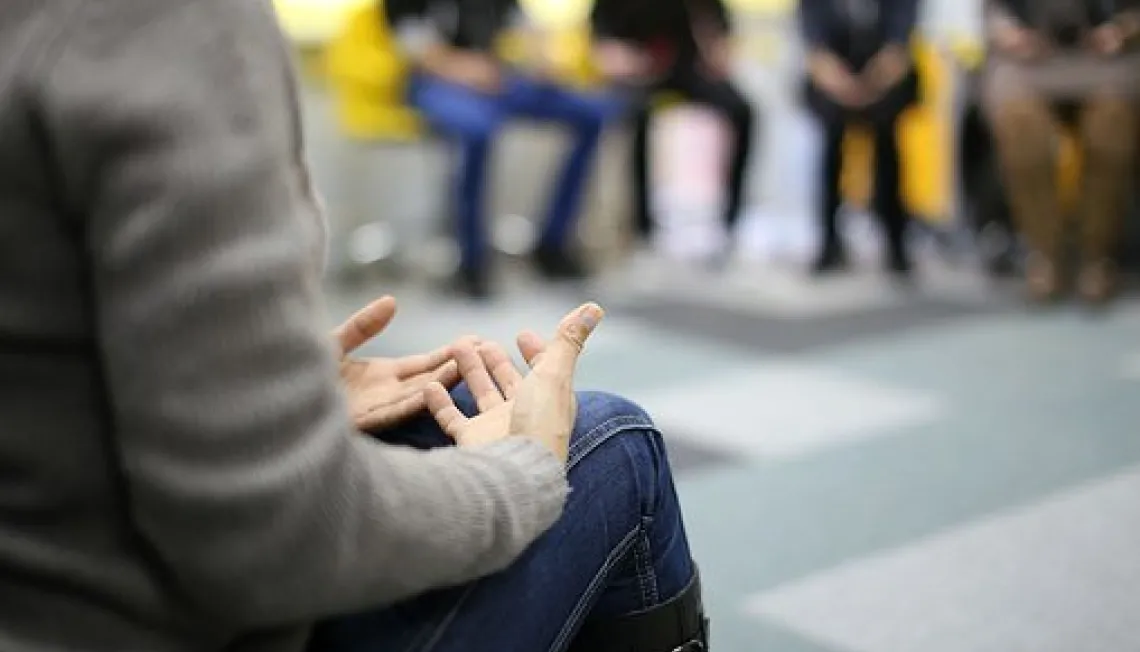We spoke to Tracy Kent, Deputy Chief Executive at the Hampton Trust, who told us about the framework of the project and its expansion into multiple regions in England.
In 2011 the Hampton Trust formed part of a strategic stakeholder group across Hampshire to consider alternative sanctions for domestic abuse perpetrators. Born from this was Project CARA, which was piloted by Hampshire constabulary in 2012 and has since been embedded in Hampshire and the Isle of Wight.
Eligibility criteria
Project CARA would be offered to a subject as an out of court disposal in the form of a Conditional Caution in response to an incident of domestic abuse. Only incidents which are classified as "standard" or "medium" using the DASH risk assessment model would be considered eligible for a Conditional Caution. The subject must have no previous convictions or cautions for violence in the previous two years. Past minor convictions are permitted unless the subject is currently serving a community based sentence or order. The victim must also agree for their partner/ex-partner or family member (18+) to attend the CARA workshops.
Course framework
The workshops are offered in different languages for accessibility and any of those engaged in the programme who have a disability, or anything which will stop them attending group work, will have the option of engaging over the telephone.
The sessions are carefully constructed to enable participants to identify as being abusive and to explore what constitutes healthy, positive relationships. A pair of workshops provide participants with strategies and skills to build respectful relationships, with the two workshops set four weeks apart. This includes focusing on different aspects of violence and control, and on skills for better relationships and parenting. CARA utilises a trauma informed approach and motivational interviewing techniques delivered across the pair of workshops. The aims and objectives of the workshops are to enable offenders:
- To reflect on the incident, including personal triggers
- To gain an understanding of different types of abuse within a family dynamic
- To recognise physical symptoms of anger and the feelings which lead to anger and then violence
- To recognise the damaging effects of behaviour on themselves and others
- To understand personal risk and protective factors
- To reflect on self-esteem and self-regulation, designed to increase personal resilience
- To establish personal time out strategies and safe conflict techniques
- To understand communication and conflict resolution skills
- To identify future strategies for sustaining change
- To provide signposts to other relevant agencies or organisations.
Victim engagement and feedback is key to CARA. Between the two workshops, the partner/ex partner or family member of the participant is contacted to seek information on any changes (positive or negative) that they have observed in their behaviour, and to assess any safeguarding and/or other referral needs. This feedback is provided to the facilitators prior to the second workshop so they can address any concerns or issues with the participant. To protect the confidentiality of the victim this is done via a conversation concerning the issue with the whole group rather than singling out the individual concerned, thus not alerting them as to the identity of the person who has provided the feedback. To do this, an attempt is made to draw the person identified into the group conversation – so as to address the issue indirectly using the material and behavioural strategies used in the workshop.
Making a difference
The Hampton Trust has received positive feedback from both perpetrators and victims, with examples of both groups expressing a demonstrable change in the behaviour of perpetrators and improved outcomes for their relationships. A number of perpetrators of abuse have expressed that the workshops gave them a space to talk through what was happening in their lives and that the workshops equipped them with the skills to recognise negative emotions and behaviours as well as the strategies to deal with them when they arise. It also gave them the skills to reflect and with the help of the facilitators, made them recognise the impact their behaviour has had on the victim.
Funding and growth
OPCCs fund CARA in the areas in which it runs. On average, funding is allocated for at least two-three years, but some project areas have rolling yearly contracts.
Project CARA has been embedded in various other constabulary regions in England, where it is delivered by the Hampton trust, and will subsequently be rolled out in Buckinghamshire in October 2021. Tracy told us that there are plans to expand the project even further with the Hampton Trust providing the framework for CARA to local area providers to deliver the programme on the ground. This method has been trialed in West Yorkshire, with Restorative Solutions delivering the programme in this area.
For more information about this project, please contact Tracy Kent at tracy.kent@hamptontrust.org.uk
This case-study was compiled by Jason Watt in 2021
